Living Safely in your Home
We want you to live safely in your home. As a landlord we have some safety measures that are legal or regulatory requirements. Other safety measures are to reduce risks in shared areas or facilities in blocks of flats.
Do not allow anyone into your home who is not expected and does not have photo ID. If you’re unsure, please phone 01233 331111 so that we can check if we have sent a contractor.
Below you can find information on a range of safety measures.
Gas safety
+ Gas leaks
If you think you can smell gas, you should:
- If you can do so safely, turn off the gas with the lever next to the gas meter
- Open windows to ventilate the property.
- Exit the property.
- From outside of the property phone the National Gas Emergency Service immediately on 0800 111 999
- Then contact our gas contractor on 0800 206 1371 (Freephone from a landline) or on 01795 477098.
Do not operate any electrical appliance, socket, light switch or door bell.
Do not smoke or strike lighters or matches, or do anything which might result in a spark. Extinguish all naked flames.
For communal entrances, try to alert others not to use any door entry system. Wait for the gas engineer and let him in manually.
If you believe it is safe to do so, turn off your gas supply at the gas meter, then:
- Check if any gas tap or appliance has been left on or any pilot light blown out;
- Open all doors and windows;
- Alert your neighbours.
+ Gas safety checks and servicing
Visit our Gas Safety Checks page for more information.
+ Carbon Monoxide
Carbon monoxide is a poisonous gas that has no taste or smell. It is created when a gas flame burns incorrectly. It can kill. Find out more about carbon monoxide and its symptoms on the NHS website. We install carbon monoxide detectors which are maintained by our gas contractor.
Follow these steps to help keep your household safe:
- Never disconnect, damage or remove the detector; test your carbon monoxide detector every week. Contact our gas contractor if you have concerns;
- If the alarm sounds continuously, turn off your gas supply, open doors and windows, and contact our gas contractor;
- If anyone is showing symptoms of carbon monoxide poisoning, get emergency medical help and move them into fresh air;
- Never block air vents on any appliance, outside grilles, flues or airbricks;
- Report any yellow or orange flames (gas burns safely with a bluish light), any stains or soot, and any pilot lights that regularly extinguish without reason;
- Do not sleep in rooms where a back boiler is installed;
- Keep the boiler cupboard free from stored items to ensure air circulation;
- Always use a Gas Safe engineer to install and service gas appliances which belong to you;
- Always allow access for gas safety checks by our gas contractor.
Fire safety
+ Fire safety
We take fire safety very seriously. There is a lot you can do to reduce the chances of a fire in your home.
We carry out regular fire safety assessments in blocks of flats. We then conduct any works needed to remove or reduce any risks. In the meantime, please report any repairs or issues in communal areas; for example, a fire door which is not closing properly, emergency lights not working, flammable rubbish left in a communal space.
Follow these steps to help keep you and your neighbours in blocks of flats safe from fire:
- Keep all shared areas free from rubbish and personal items;
- Test your own smoke detectors at least once a month;
- Read the fire action signs displayed in your block and take note of fire exits and escape routes;
- Ensure any naked flames, such as candles and cigarettes, are controlled and properly extinguished;
- Make sure fire doors close completely behind you, and never prop them open;
- Don’t allow non-residents into the block, to reduce the chance of anti-social behaviour;
- Report any issues that might cause a fire hazard quickly.
- We provide smoke detectors for your home. The number and where they are sited will depend on the layout of your home. We also install hard-wired smoke detectors with long-life back-up batteries when we upgrade electrical wiring. If you have a Lifeline system, your smoke detector may be connected to it.
Follow these steps to reduce fire risk:
- Test your smoke detectors at least once a month;
- Never disconnect a smoke detector;
- Never assume a sounding detector is a false alarm;
- Tell us if you think there is a fault with your smoke detector;
- Ensure any naked flames, such as candles and cigarettes, are controlled and properly extinguished. Matches and lighters should be kept out of children’s reach;
- Don’t overload plug sockets or use multi-point adaptors or extensions – ‘one socket, one plug’;
- Don’t carry out any works on your gas installation or electric wiring yourself. Don’t allow anyone unqualified to do so either;
- Don’t leave anything that is cooking unattended, particularly anything using oil or fat;
- Where possible, switch off appliances overnight and when you leave your home unattended.
Follow these steps if you suspect or discover a fire: - Don’t try to tackle a fire yourself. Remove yourself and anyone else from the area and close the door;
- Call 999 and ask for the Fire Brigade;
- Feel doors with the back of your hand before opening them. If a door is warm, leave it closed;
- Keep low to the ground wherever there is smoke present as the air will be clearer there.
Electrical safety
+ Electrical safety
We carry out electrical wiring installation checks regularly, in your home and in shared areas.
In the meantime, if you have an electrical problem, please report it to us.
Follow these steps to help protect you and your family from electricity:
- Know where your fuse board is and which is the main switch. This will allow you to turn it off in an emergency;
- Don’t carry out any works on your electric wiring, sockets, switches or light fittings yourself. Don’t allow anyone unqualified to do so either;
- Always switch off TVs and pull out the plug at night, or if leaving your home unattended;
- Make sure plugs are correctly wired and have the correct size fuse;
- Don’t overload plug sockets or use multi-point adaptors or extensions – ‘one socket, one plug’;
- Keep water away from the electrics. Never touch switches with wet hands, or turn on appliances or light fittings you know to be affected by water;
- Check cables and flexes for damage. Do not run them under flooring where damage could occur unnoticed.
- The Electrical Safety First website has more useful guidance.
+ Appliance safety
Let us know if you experience a problem with an appliance that has been provided by us as part of your tenancy.
You are responsible for the safety of your own electrical appliances. Check them regularly for damage and wear-and-tear. If you notice any damage then get them repaired or replace them. There have been some recent safety concerns about certain models of domestic appliances – check yours on the Electrical Safety First website.
Condensation and mould
+ Condensation and Mould
Condensation and sometimes black mould can occur when moisture in the air hits a colder surface. Over time this can cause damage to your home and possessions. In daily living, we all produce a level of moisture into the air in our homes. Moisture is unavoidable, but it is your responsibility to keep those levels as low as possible.
View guide to condensation and mould leaflet [pdf] 460KB
Please contact us if you believe you’ve followed all the advice in the leaflet and the problem is still not improving. Provide us with photos of the affected areas, if possible.
+ Asbestos
Asbestos is a natural mineral that was widely used in the building trade before the year 2000. It was mainly used for fire protection, heat and sound insulation and to strengthen other materials.
Asbestos can cause a range of very serious health problems. These are rare and generally occur in people who have had exposure over a long period. Intensive situations, such as in a factory making asbestos-containing products, can also cause health problems. There are different types of asbestos, with different levels of risk. Your home may have materials containing asbestos but the risk is likely to be low.
Asbestos is most likely to be found in the following places in homes built before 2000:
- In old vinyl floor tiles;
- In textured wall and ceiling finishes, such as Artex;
- Behind boilers and in airing or electrical cupboards;
- In certain types of roofing materials on garages, sheds, or porches;
- Older types of guttering and downpipes.
Asbestos is safe if it is not disturbed, damaged or is sealed (for example; surfaces that are painted, boarded or plastered over). Disturbing or damaging surfaces may release tiny asbestos fibres into the air. Inhaling these fibres can be a risk to your health. We do not remove undamaged or sealed asbestos.
We take our responsibilities regarding asbestos very seriously to protect you and our contractors. We take special precautions before carrying out work that may damage or disturb asbestos. We review previous records and test material before starting works. We will dispose of any asbestos according to regulations. We use specialist contractors to help us manage asbestos risk.
Follow these steps to protect you and your family from exposure to asbestos: - Don’t carry out any works yourself that might disturb or damage an asbestos-containing material. Contact us for advice if you are unsure;
- Don’t drill, sand, scrape, or cut into asbestos-containing material;
- Don’t remove or dispose of any asbestos-containing material yourself. Don’t allow anyone unqualified to do so either.
- Contact us immediately if you think you may have accidentally disturbed or damaged asbestos in your home.
Read our Asbestos Advice leaflet [pdf] 365KB for further guidance.
+ Water hygiene (Legionella)
Legionella is a bacterium which may be present in stored or stagnant water.
It requires certain conditions for it to grow. Infected spray or water droplets can cause Legionnaire’s disease.
This is a rare type of pneumonia which causes a range of health risks. Early treatment with antibiotics will usually prevent ill health.
Mains water is treated by water companies to remove the risk of legionella. However, infection may occur between the treatment site and your home.
We carry out regular inspection and testing of shared water supplies in blocks of flats. We follow an approved code of practice.
The risk from disease caused by legionella is low in individual homes, because of regular flush-through when a home is occupied. Follow these steps to help protect you and your family from legionella:
- Regularly de-scale taps and shower heads – limescale can be a home for the legionella bacteria. This is good practice anyway for keeping your home clean;
- Ensure all water thermostats are set no lower than 60˚ C – legionella cannot grow at this temperature
- Don't remove covers on water storage tanks as these keep out dust and debris;
- Drain off and refill any water storage tanks before you use any water from them after a long period away from home.
+ Legionnaires Disease
Legionnaires’ disease is caused by bacteria called Legionella and is an uncommon form of pneumonia.
The bacteria causing the disease exist naturally in the environment, usually in low numbers. They can also live in purpose-built water systems such as hot and cold water systems, taps, showers, spa pools and hot tubs. Infection occurs if you inhale tiny water droplets containing the bacteria.
Legionella can survive in low temperatures, but thrive at 20 C (68 F) to 50 C (122 F). Over 50 C the bacteria starts to die. Bacteria is killed instantly at 60 C (140 F)
Read our Water Safety At Home [pdf] 241KB for further guidance.
Security
+ Security
Follow the follow steps to keep your home secure:
- Report any suspicious activity around your home to the police. Phone 101 for enquiries, or to give information. Phone 999 if you witness a crime in progress or in an emergency situation;
- Report any door or window problems that stop secure closing;
- Ensure you close all entrance doors and lock them when you leave your home;
- Ensure all windows, sheds, garages and outhouses are closed. If possible, keep these locked;
- Don’t make it obvious if you are away from home. Cancel any deliveries and beware of social media posts that reveal your absence;
- Don’t let anyone into your home who you do not know, or who is unexpected;
- Don’t give others a key to your home unless you completely trust them to enter your home;
- Don’t leave your keys in places others may easily find them;
- Don’t allow others to make copies of your keys;
- Ensure communal doors close behind you if you live in a block of flats. This should be done when you enter and leave the building. Never prop doors open – this can allow unauthorised people in and damage the self-closing mechanism too;
- Let us know of any security repairs needed to communal doors, including door entry systems and time clock faults;
- Let us know of any failure of external security lights if they are our responsibility to maintain;
- Find out if there is a local Neighbourhood Watch scheme on the Neighbourhood Watch website.
Further advice on personal and home security can be found on the Police.uk website.






